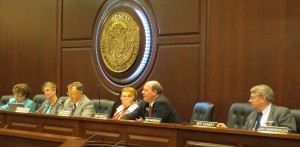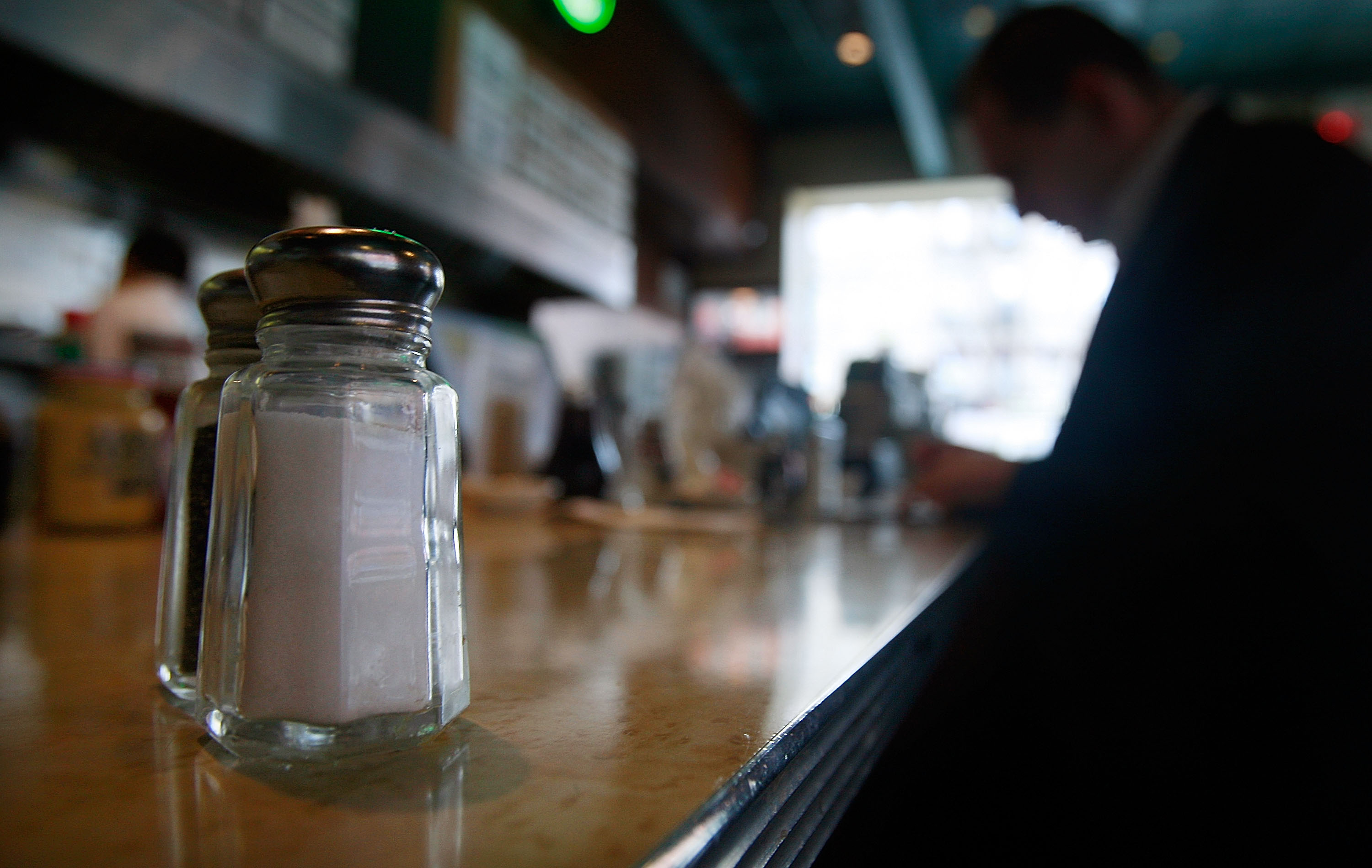Local Leaders Turn Out To Oppose Business Lobby Tax Plan

Molly Messick / StateImpact Idaho
Rep. Mike Moyle asked a question of a local official from Burley, Idaho in today's public hearing.
At the Capitol this morning there was a long public hearing on two competing bills that address Idaho’s business personal property tax. That’s the state’s tax on business equipment and machinery. StateImpact talked through the two proposals and today’s public comment with Boise State Public Radio host Samantha Wright.
Here’s the full transcript:
Q: Molly, the personal property tax is pretty technical. Why don’t you set us up?
A: Sure. This effort to address Idaho’s business personal property tax has been one of the most anticipated of the session. The tax applies to all sorts of business equipment, from office telephones to large machines. Its opponents call it a nuisance and they say getting rid of it will help the state’s economy. But on the other hand the tax brings in about $140 million each year for local government and taxing districts. For example, if you vote in favor of a school levy, some of the money it raises comes through this tax on business personal property. So that’s the real tension here. And it’s a tension that we can see in the two bills that are on the table.
Q: Those two bills were introduced last week. One has the backing of the Idaho Association of Counties, and the other comes from the Idaho Association of Commerce and Industry. That’s the business lobby. What can you tell us about them?
A: The bills, particularly the bill from the Idaho Association of Commerce and Industry, are pretty detailed. Briefly, though: the bill that’s coming from groups that represent local government would exempt the first $100,000 worth of business personal property from taxation, and it would use state revenue to replace that lost local revenue. The cost of that is estimated at about $19 million.
The bill from the Idaho Association of Commerce and Industry is much more sweeping. It would eliminate the tax altogether between now and 2019. That will cost as much as $120 million. Again, that money would come from the state general fund, so there is replacement money. IACI represents a lot of the state’s large businesses. We know their bill has the support of some big players, including Micron Technology and Idaho Power.
Q: That brings us to today’s testimony. Tell us about it.
A: The two bills are now in the Rev and Tax Committee. We knew at the outset that the committee wouldn’t vote today, so this was really intended to be an opportunity for the public to weigh in. The first person to testify was Department of Commerce Director Jeff Sayer. He was there to make a strong push for the Idaho Association of Commerce and Industry bill.
Jeff Sayer: “We are in full support of eliminating this tax. We need to find and drive our operating costs for our businesses down to the lowest point we can possibly get them, and eliminating this tax helps us get there.”
Q: So he’s saying this will help the state recruit businesses?
A: That’s right. And of course the Commerce director’s opinion carries weight. But Sayer was in the minority. Several people who work in local economic development testified that cuts to local services and schools would make it very hard for them to recruit new employers to their communities. Many local officials believe that a full exemption will result in local cuts, even though the IACI bill calls for replacement revenue. That’s because the full exemption limits the tax base they have going forward.
Overall, there were more people who turned out in favor the bill that partially eliminates the personal property tax. Many of them traveled quite a distance to testify. One of them was Molly Stein. She’s the superintendent of the Soda Springs School District, and here’s a little of what she had to say.
Molly Stein: “In our efforts to remain fiscally solvent, we have closed an elementary school, a one-room school house, and our alternative school. We have moved to a four-day schedule, had a failed consolidation effort, and reduced salaries. We have had every aspect of our system audited for efficiencies.”
So she’s talking about the budget problems her school has faced based on cutbacks in state funding. She went on to point out that almost half of the levy funding her district receives comes from the personal property tax. She said several times that eliminating the tax would be devastating.
Q: Today’s hearing went on for several hours, but as you said, the committee didn’t vote. What’s next?
A: Rev and Tax Chairman Gary Collins says they’ll wrap up the remaining public testimony first thing tomorrow, but they won’t do anything more on the bills then. The big meeting, it sounds like, will be on Thursday morning. The committee could vote at that time. Remember, we’re still in the early stages of this process. The bills are in committee. After that, the hurdles are the full House and the Senate. And lawmakers are trying to finish the session by the end of this month, so the clock is ticking.
Q: Molly, thanks for joining us.
A: You’re very welcome, Sam.


